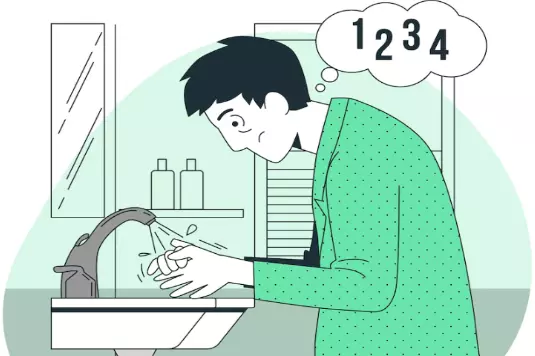
Obsessive Compulsive Disorder, one of the most common psychiatric disorders, affects every aspect of human life, as well as people who do not have this disorder. OCD can cause great difficulties in establishing and maintaining romantic relationships. While people with Obsessive Compulsive Disorder are mostly single, those who are in a relationship report that they experience great stress in their relationships. On the other hand, people who are in a relationship with someone with OCD face different kinds of difficulties and can become stressed. In this article, we talk about OCD and the effect of this psychological disorder on relationships.
-
What Is Obsessive Compulsive Disorder?
Obsessive Compulsive Disorder (OCD) is a psychological disorder in which irrational emotions and thoughts cause people to exhibit repetitive behaviors. Individuals with Obsessive Compulsive Disorder generally do not realize that their thoughts are irrational and generally try to get rid of these thoughts. However, these efforts increase people's problems and concerns even more.
-
Types Of Obsessive Compulsive Disorder?
- Contamination obsession and cleaning compulsion
- Doubtful obsession and control compulsion
- Sexual obsessions,
- Religious obsessions,
- Symmetry – order obsessions and compulsions,
- Tactile compulsions,
- Counting compulsions,
- Accumulation and storage compulsions,
- Auspicious - unlucky numbers,
-
How Can You Know If You Have OCD?
OCD obsession often manifests in young adulthood and symptoms worsen over time. Stress is the most important factor in the increase of this ailment. Even if the person thinks that these thoughts and behaviors are absurd, the individual cannot prevent them.
Obsession: Repetitive and unwanted thoughts or images. Example: Did I wash my hands after using the toilet?
Temporary relief is seen, but this relaxation causes obsessions and compulsions to reappear.
Anxiety: What if I didn't wash my hands? What if I get infected and infect my family?
Compulsion: Repetitive behaviors to reduce anxiety: For example: Washing your hands 10 times
If examples like the above are observed in you or someone close to you in daily life, you should consider seeking professional help.
-
Things To Consider By Family Members
- Relatives of patients with Obsessive Compulsive Disorder should be more cautious about these patients.
- It should be taken into consideration that patients with the disease have thoughts that are out of their hands, and it should be tried to understand.
- There should be no judgment or criticism about their illness, on the contrary, support should be given to make them feel good, and oppressive and frugal behaviors should be avoided.
- It should be evaluated not on its shortcomings and mistakes, but on its positive aspects and developments, and this should be expressed to the person.
-
How Obsessive Compulsive Disorder Affects Your Relationship?
Obsessive Compulsive Disorder is often thought of first in terms of the individual, but symptoms often occur in a relational context. Relatives of individuals with obsessive compulsive disorder are also exposed to relational and psychological stress. One of the most common OCD obsessions, the fear of dirt and contamination, causes the individual to have problems with sexuality, which is an important aspect of establishing intimacy in a relationship. Obsessive Compulsive Disorder often causes sexual avoidance and sexual dissatisfaction.
While OCD can pose great challenges in forming and maintaining romantic relationships, there are ways to cope.
- Evaluate treatment to control symptoms
- Consider psychotherapy
- It may be helpful for your partner to take a more active role in your treatment. The better your partner understands your symptoms, the more trust you will have in each other.
- When partners, family, and friends learn more about OCD, it becomes easier for them to be supportive and understanding.
- Especially when the OCD symptoms intensify or the symptoms change, it is necessary to share this with your partner, to report the experienced situation and the difficulties encountered. Avoiding misunderstandings is important for building intimacy and trust.
Having Obsessive Compulsive Disorder doesn't mean you have to feel helpless and hopeless. With adequate understanding and professional help, you can build healthy and satisfying relationships.
